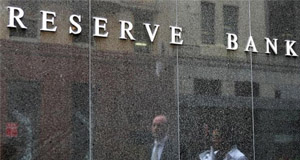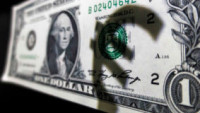 Early on Thursday, RBNZ policymakers gathered to decide on monetary policy. As it was widely expected, the RBNZ held cash rates unchanged maintaining rates at a record low of 1.75%. However, the bank’s preference over a lower exchange rate, expressed after the release of the statement, pushed the kiwi down to a four-week low, while electronic retail sales figures pressured the currency further.
Early on Thursday, RBNZ policymakers gathered to decide on monetary policy. As it was widely expected, the RBNZ held cash rates unchanged maintaining rates at a record low of 1.75%. However, the bank’s preference over a lower exchange rate, expressed after the release of the statement, pushed the kiwi down to a four-week low, while electronic retail sales figures pressured the currency further.
Despite recent data showing a negative change in employment for the first time since November 2015, and a softer GDP growth and inflation, the bank decided to keep rates on hold while it also stated that monetary policy will remain accommodative for a “considerable period”. Particularly the RBNZ sees rates increasing to 1.8% in December 2018, to 1.9% in December 2019 and to 2.1% in September 2020. Following the statement, the RBNZ governor, Graeme Wheeler, said during his testimony that as headline inflation is expected to rise in the midpoint of the target range of 1-3% in the long-run there was no need to cut rates, while he added that in the coming quarters the bank expects inflation to slow down. Moreover, the statement pointed out concerns over an appreciating exchange rate, which has been rising significantly since the May meeting, on the back of a weaker dollar. The RBNZ governor explained that a lower currency is favorable as it would raise tradeable inflation and deliver a more balanced growth. Although he added, the bank has always the option to intervene in exchange markets and prevent rapid appreciation, even though it was reluctant to do so in the past.
Few minutes after the release of the statement, Statistics New Zealand published the figures on electronic card retail sales for the month of July. The numbers disappointed expectations, as retail sales plummeted by 0.5% month-on-month, missing the forecast of a growth of 0.3%. In the previous month, electronic card sales were down by 0.1% (downwardly revised from 0%). On a yearly basis, sales improved by 2% compared to 4% seen in June. This was the lowest increase since September 2012.
Looking at the forex markets, Wheeler’s comments on the exchange rate as well as worse than expected electronic retail sales weighed on the kiwi during the Asian session. The kiwi fell by 1% to a four-week low of $0.7250. Before the release of the statement, kiwi/dollar was trading at 0.7350.

Origin: XM













